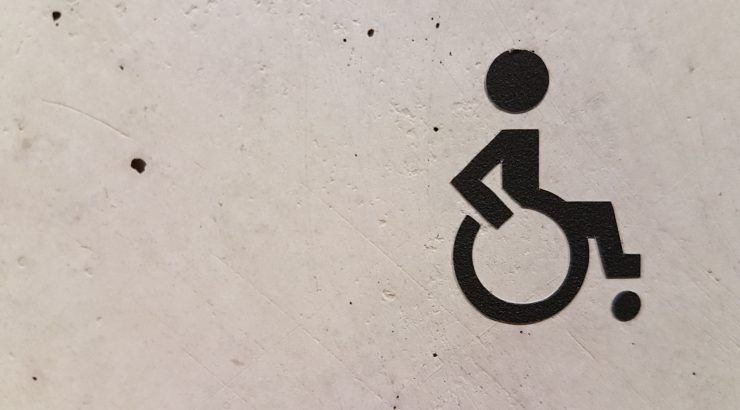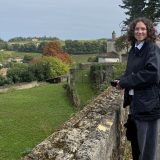
Blaser and Boyd Connect Disciplines and Create A New Course for Fall Peace Politics and Human Centered Design and Engineering
July 20, 2020
When asked what was the best part about co-teaching a class, Dr. Arthur Blaser (Peace Studies and Political Science), joked “sharing the terrible grading!”
This Fall, “Introduction to Disability Studies” will be co-taught by Dr. Blaser and Dr. LouAnne Boyd (Fowler School of Engineering) under a new title worthy of their partnership, “Peace Politics and Human Centered Design and Engineering.”
The pair met while co-chairing the Advisory Group on the Status of Disability and Accessibility, one of eight advisory groups that make up Chapman University’s Diversity Project. Upon hearing about the Co-Teaching Competition that Chapman offers, Blaser and Boyd decided to throw their hats into the ring and won the award for the 20-21 academic year.
After securing one of Chapman’s Universal Design classrooms, which are devised to be barrier-free and used by all people without the need for adaptation, they began preparations for the class this summer. Connections between their disciplines may not be obvious to others but to them it is second nature. The course will bring together students focused on engineering and students majoring in the humanities and social sciences, with each group bringing something important to the conversation.
“The coolest thing is how Engineering overlaps with Peace Studies as both are concerned with solving human problems by creating accessible platforms,” Dr. Boyd noted.
They plan on introducing students to the theory and history of Disability Studies and having each student delve into Universal Design principles by making prototypes that reflect concrete accessibility solutions. Various syllabus topics that students will explore include “Maker Culture (or Do-It-Yourself Culture) and the Role of Tech in Independent Living” and “Technology-Enabled Disability Rights Movements.” Non-engineering students will be introduced to designing prototype or models while engineering students will engage with new theories critical to their technical prototype work.
Dr. Boyd and Dr. Blaser are finding that the current global context is extremely relevant to their course. The online classroom experience can be more challenging and debilitating for some but it shows that many of the adaptive learning techniques can be beneficial for everyone. They hope that their class shows students that by making connections between the different disciplines the whole emerges stronger.
“I believe that it is our job as professors to show students how to connect our disciplines and use democratic dialogue to open the world up,” expressed Dr. Boyd.
Be sure to check out Dr. Blaser and Dr. Boyd’s Podcast where they share their work in helping the hearing impaired through the use of emerging technology.
The interdisciplinary Minor in Disability Studies prepares students to work in disability-related professions or to integrate the concepts and experiences of people with disabilities into more general careers or academic professions. Admission to the minor requires approval from the coordinator of the minor – learn more!



